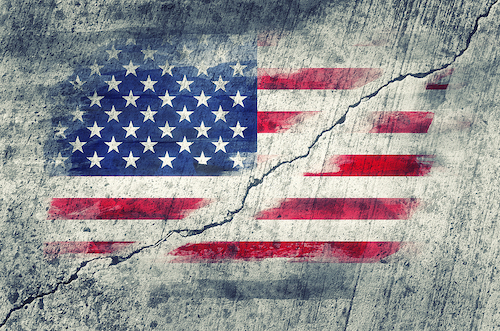 Americans are overwhelmed with multiple sources of stress.
Americans are overwhelmed with multiple sources of stress.
According to the American Psychological Association (APA), the United States is facing a national mental health crisis that could have consequences well into the future.
The APA's Stress in America Survey found that the COVID-19 pandemic has had a profound impact on the mental health of the nation, and combined with other stressors like the upcoming election and uncertainties surrounding the future, Americans are feeling overcome with stress.
“It seems like sources of stress are more prevalent. It feels like everything is coming to a head all at once. That's a feeling, though, and emotions can't be true or false. It's vital to separate stressors into things you can and cannot control and focus valuable energy on things you can control,” Dr. Shane Owens, a board-certified psychologist and Assistant Director of Campus Mental Health at Farmingdale State College told Theravive.
“You can manage your personal and family's response to COVID-19 by keeping your distance, wearing a mask, washing your hands, and staying home when you're sick. You can exert control in the election by voting. You can take some control of the economy by writing and sticking to a budget, seeking education and training, and applying for good jobs,” he said.
78 per cent of American adults say the COVID-19 pandemic is a significant stressor in their life and 67 per cent say they personally have experienced significant stress during the pandemic.
This stress is taking a physical and emotional toll on Americans. 49 per cent of adults say their behaviour has been negatively impact due to the pandemic, with 21 per cent reporting increased tension in their bodies, 20 per cent reporting getting angry quickly or “snapping”, 20 per cent reporting unexpected mood swings and 17 per cent reporting screaming or yelling at loved ones.
Dr. Owens says that stress isn’t always a bad thing, but an individual’s response to stress determines how significantly it impacts them.
“It is natural to experience stress in response to COVID-19 and all the things it demands of us. It's crucial to remember, though, that stress is not necessarily bad for us. Our stress response is what determines the effect it has on us,” he told Threravive.
“If you can acknowledge the stress and use it to motivate yourself to behave in effective, valuable ways, its long-term effects may be relatively slight. On the other hand, if you experience stress as uncontrollable, awful, and horrible, you may suffer dire long-term consequences. Help to deal with stress is available from qualified mental health professionals and organizations such as the Anxiety and Depression Association of America and the American Psychological Association.”
60 per cent of adults in America say the number of issues facing them at this time is overwhelming them. 66 per cent say health care is a significant source of stress, whilst 62 per cent feel the same way about mass shootings and 55 per cent feel that way about climate change.
Immigration and the rise in suicide rates are also sources of stress with around half of adults citing these as significant sources of stress. 65 per cent say the amount of uncertainty currently facing the United States is causing them stress.
That’s a stress that is shared by many Americans. 77 per cent of adults say the future of the United States is causing them significant stress, a significant increase from 2019 when 66 per cent of adults felt the same way.
71 per cent of Americans believe this is the lowest point in the history of the nation that they can recall. By contrast, in 2019 56 per cent of adults felt this way.
The impending election is on the minds of Americans, and it is causing stress on both sides of politics. 68 per cent say the current political climate and the 2020 US Presidential election is a significant source of stress in their lives. 76 per cent of Democrats, 67 per cent of Republicans and 64 per cent of Independents say the election is a significant source of stress.
In 2016 during the last presidential election, 52 per cent reported the election as a significant source of stress.
Despite the stressors of the election, and living during a global pandemic, Americans still say they’re hopeful.
71 per cent say they’re hopeful about the future. Millennials have the most hope of all the generations, with 76 per cent supporting this sentiment. 72 per cent of boomers, 71 per cent of Gen X, 69 per cent of older adults and 64 per cent of Gen Z adults feel the same way.
Notably, 54 per cent of American adults feel they can use their voice and make a difference in the world.
“The key to making it through this current and all future crises is taking personal responsibility for controlling the things you can. Take good care of yourself. Keep your distance, wear a mask, wash your hands, stay home when you are sick, and seek help as soon as you ask yourself if you need it. Listen to scientists and medical professionals and understand that science is a journey, not a destination,” Dr. Owens said.
“Expert advice may change as we learn more. The way things get better after we change our approach is evidence that scientists and doctors are getting better at bringing the virus under control. Don't wait for the media or the government to tell you what to feel or think. Take action.”
Elizabeth Pratt is a medical journalist and producer. Her work has appeared on Healthline, The Huffington Post, Fox News, The Australian Broadcasting Corporation, The Sydney Morning Herald, News.com.au, Escape, The Cusp and Skyscanner. You can read more of her articles here. Or learn more about Elizabeth and contact her via her LinkedIn and Twitter profiles.